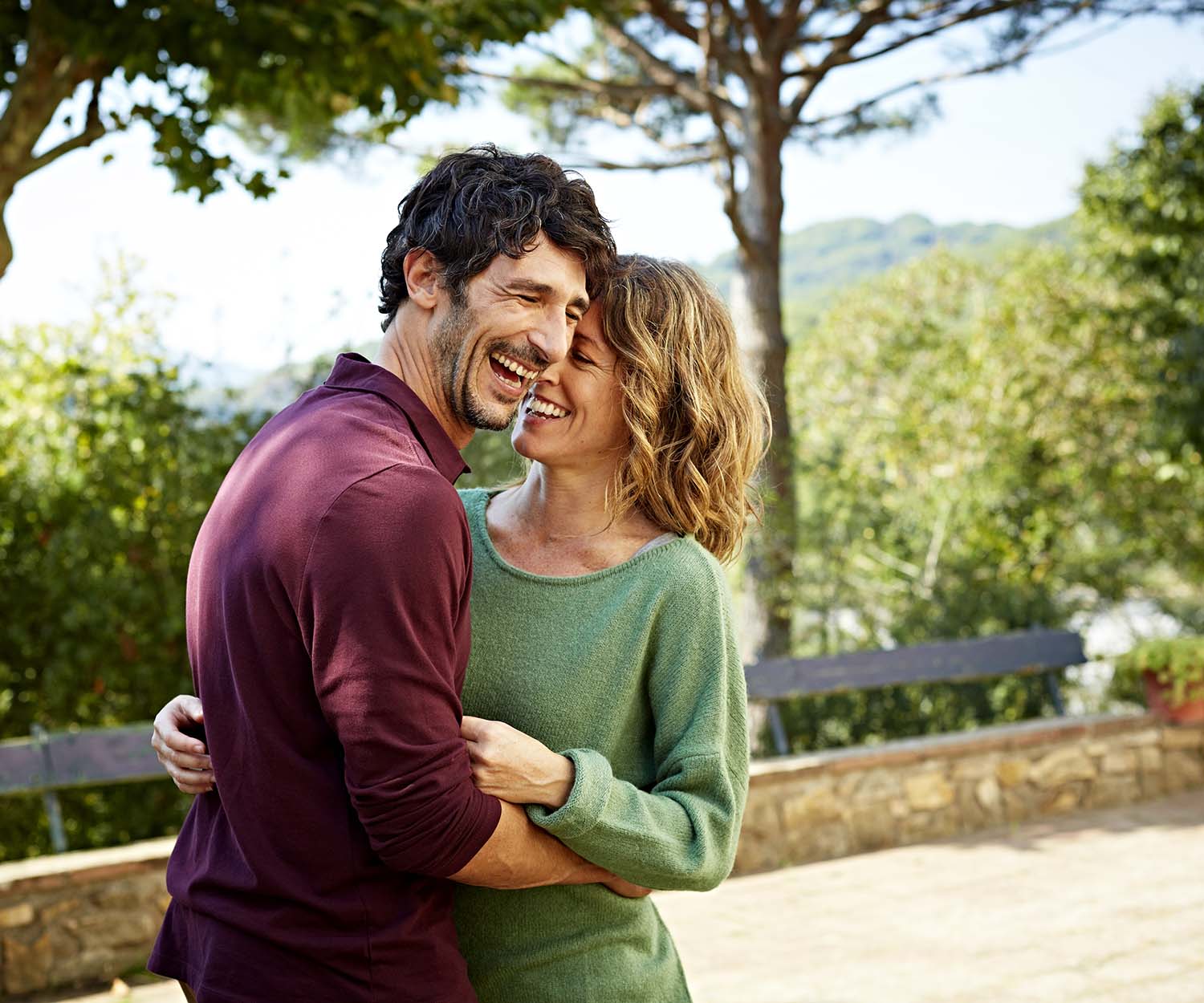There’s nothing quite as sobering as discovering that every one of the 40+ aged work colleagues you’re standing around a table with at ‘Friday night drinks’ is on Tinder.
While the singles scene may be slightly over-represented in the group I’m with, the fact remains there are a lot of over-forties involved in the online dating scene.
It makes sense when you do the math. New Zealanders typically marry in their early thirties (31 if you’re a woman, 32 if you’re a man). The median duration of a marriage is 13 years and the average age for divorce is mid-forties.
So 40-somethings can find themselves back on the market after several years of cohabiting with a significant other.
And while, 13 years ago, online dating was relatively uncharted territory for New Zealanders, now it’s deeply entrenched in the way Kiwis search for love.
I was averse to signing up to an online dating site after my 10-year marriage ended at the start of this year.
I had tried it in my thirties and only met a criminal, a dude who didn’t look anything like his photo and a Welsh guy who had no respect for women.
But in May I had an unexpected and surprisingly lovely holiday romance; it gave me a confidence boost. I thought I’d give it a whirl.

I signed up to Bumble and within minutes my Beeline (inbox) started filling with profiles of men who wanted to meet me.
This is great, I thought – exciting. I loved the little thrills I got from my phone pinging with messages: Karyn, you’re buzzworthy! Somebody wants to meet you!
I don’t remember FindSomeone being this interactive in the early 2000’s. Clearly, things have changed.
Dating sites, today, are not dissimilar to online games, proffers intimacy counsellor Angela Rennie.
“They’re designed to be addictive, so they generate lots of notifications that give us little dopamine hits – oh someone liked us, oh we’ve matched with someone, oh look at all those people in my inbox,” she says.
“In today’s society there’s almost a narcissistic need for external validation from other people. And if you’ve just come out of a break-up or you’re down in confidence, the dating sites really feed into that.”
But of all the profiles in my Beeline, I was interested in very few. And then of the guys I swiped right on, not all of them swiped right back or stuck around, if we were matched, to have a conversation.
According to research by Cornell University, which analysed the online dating behaviour of 230,000 male and 250,000 female Tinder users, the odds of people matching online then dating in ‘real life’ are actually pretty slim.
The reason why comes down to the fundamental differences between men and women.

Men typically swipe right as often as possible to get a first match then decide once they’ve been matched whether they want to follow through and talk to that person.
Women are very picky about who they swipe right on and become even more cautious when they realise that not everyone they swipe right on will swipe right back. It’s a vicious circle.
Incidentally, women are three times more likely than men to send a message, but take much longer than men to start a conversation – which tells us that women are more engaged from the get-go because they’ve already invested time and energy into deciding whether they’re interested in someone.
I ended up dating two guys I met through Bumble. One was super-lovely and so – you guessed it – at 47 I did exactly the same as my 20-year-old self would have done and decided he was too nice, declining his invitation for a second date.
The other – let’s call him Peter – was enjoying the life of a player, dating multiple women at once.
But he didn’t tell me until Date Three when I was already invested. I was pretty sure we’d be riding off into the sunset together so I stuck around – not totally cool about the other women, but quietly confident that they’d fall away as he fell more in love with me each day. I was tossed aside after Date Five.
Online dating in your forties suddenly felt brutal, but intimacy counsellor Angela Rennie would rather suggest that maybe I just went in a bit naïve.
For a start, know and accept what the research tells us about online dating and the odds of matches actually working out in real life, she says.
“And for that reason it’s really important not to personalise this,” she says.
She also suggests sitting back for a while, if you do start spending time with a match, to see whether their behaviours match their words.
“For women, especially, it’s easy for men to tell us what we want to hear. We want to believe what they’re saying so we often take down our guards or invest too much too soon and put an ideal on it.”
With Peter I heard ‘You’re beautiful. You’re smart. I love your smile.’
But I saw non-committal behaviour. It always felt like I had to do the work when it came to arranging our next date.
Be clear on what you want, your non-negotiables, Angela suggests – and these should include not dating someone who is seeing others at the same time, she hastens to add.
“When people are dating multiple people it’s almost like they’re employing a protection mechanism,” she says. “They don’t have to invest too much in any one person which means they don’t have to risk getting hurt.
“They’re also seeking external validation – they like the idea of being able to pick and choose and it just becomes more of a game and a distraction – something that strokes the ego.
“There are a lot of genuine guys out there who will say, ‘Hey I quite like you, I’m going to go off Tinder while we’re dating and see where it goes’. That’s the kind of guy you need to be looking for.”
Be open to not dating your “type”, she suggests.
“If you have a type you can overlook some genuine good guys,” she explains.
And, she apologises here, but there is just no getting around the weirdness and superficiality of those first few messages once you’re matched.
“Yes it is very superficial and surface level,” acknowledges Angela, “but then again so is walking into a bar and meeting someone, isn’t it. You’re still going off the look or a vibe and those first conversations which can be quite superficial as well.
“But even with messaging you can usually tell if a sense of humour is coming through, if there is a bit of banter coming back and forth. You can tell a little bit by that communication.”
I messaged one guy and asked him to tell me something about himself (he’d just asked me and I’d gone in light with ‘I work in communications and have three kids’). He said ‘I was born in an orphanage’. That conversation didn’t go much further.
Another couldn’t be bothered writing more than ‘hiya’ – so I couldn’t be bothered replying.
If you decide to meet in ‘real life’, take things slowly and get to know one another in layers, Angela suggests.
“Don’t invest too much until you’re starting to work out who that person really is. At the start we’re all putting our best foot forward.”

So would I return to online dating? (I’m signed out for now.) Possibly.
As much as I was hurt, I have no regrets.
I met Peter when I was going through a particularly challenging time with one of my children. Life felt grim and Peter was a welcome distraction and escape.
With him I could talk for hours, sit on wharves and watch sunsets, ride the back roads of south Auckland on his motorbike.
It was kinda cool walking into restaurants together with our helmets tucked under our arms.
It was kinda cool the day I turned up at the office with a pash rash and my boss and workmates fell about the floor laughing.
With him I could put my worries and responsibilities to one side and as much as he played me, when he was with me he was ‘with me’.
He was attentive and affectionate and interested in what I had to say.
I am richer for having this story to tell.
Maybe it’s as simple as this: “People come into your life for a reason, a season or a lifetime. When you figure out which one it is, you will know what to do for each person.”

For more great reads pick up the latest issue of NEXT magazine, on sale now.




